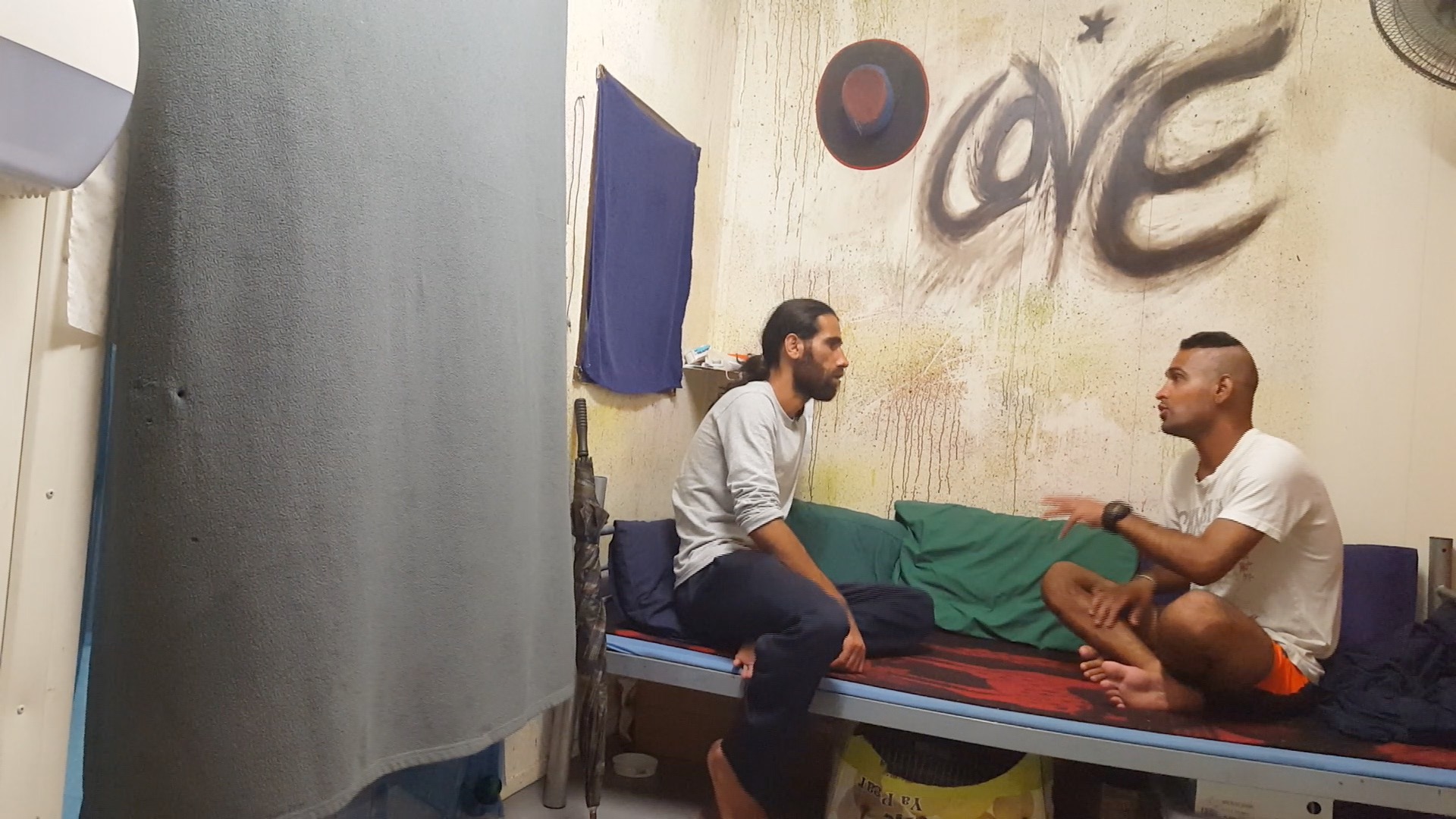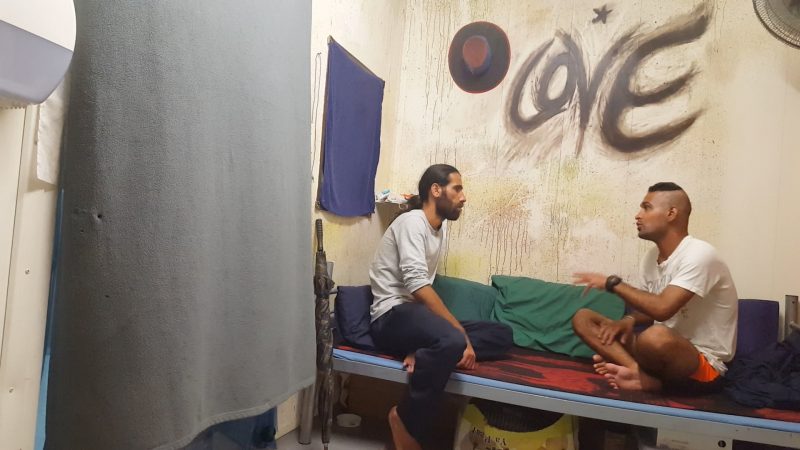Laurier’s International Migration Research Centre brings attention to immigration detention with Canadian film premiere


On Sep. 19, Wilfrid Laurier University’s International Migration Research Centre (IMRC) will host the Canadian premiere of Chauka, Please Tell Us the Time, a documentary film which looks at life inside Australia’s Manus Island detention centre in Papua New Guinea.
“We have a lot of people who work on both movement, mobility, migration and also displacement or refugee issues [at the IMRC]. In fact, this film we’re showing on Thursday really brings all those into play,” said Alison Mountz, director of the IMRC.
“It’s about the detention facilities in Australia set up on a remote island which is not its own sovereign territory. So essentially, for years [Australia has] been offshoring its commitments that it made as a signatory to the Convention Relating to the Status of Refugees by not allowing people who are seeking asylum to come into Australia,” Mountz said. “People set off by boat to try to get to Australian shores to make a claim for asylum, [but] rather than allow them to land in Australia and make that claim, Australia diverts the boat, intercepts them and sends them to these far-away places offshore.”
The premiere will take place from 7 p.m. to 10 p.m. at the Balsillie School of International Affairs, located at 67 Erb Street West in Waterloo. There is no cost for those who wish to attend however registration through Eventbrite is encouraged for those who would like to reserve their seats.
“We want people to come out, we want people to come see this film, and we want everyone to be able to participate in this amazing opportunity, not only to see this film but also to enter into conversation with the film makers” said Mountz.
The film showing will be followed by a Q and A session with the film makers: Arash Kamali Sarvestani, an Iranian Dutch filmmaker from Amsterdam, and Behrouz Boochani, an Iranian-Kurdish Journalist and award winning author who fled Iran in 2013 seeking asylum in Australia but ended up detained on Manus Island. Sarvestani will be personally attending the event while Boochani will be present via live video chat from Manus Island.
Chauka, Please Tell Us the Time reveals what life on Manus Island is like for those inside the detention centre, as well as the locals living on the island. Boochani used Whatsapp to film inside the Manus Island detention centre, interviewing other detainees and filming when he was able to avoid detection.
Canada plays a really important role as a country that has chosen to, like Australia, be a signatory to the Convention Relating to the Status of Refugees. So Canada not only resettles refugees every year but it also receives asylum claims every year.
— Alison Mountz, Director of the IMRC
“Arash and Behrouz worked together so that Behrouz basically filmed when he was able to figure out ways to do it without getting intercepted. In the film itself we see Behrouz in interior spaces, so he’ll do an interview with someone sitting on a bed or they’ll reconstruct something that happened and they film it in the detention facility when they won’t get caught,” said Mountz
Sarvestani supplemented Boochani’s footage by coordinating with other free people on the island who were able to gather more footage for the film.
“Arash, because he was not in detention, he was a free person although not on the island, in Amsterdam. He was able to coordinate with other people who were outside of detention and stage other things being filmed, for example interviews with locals outside of the facility,” said Mountz. “They assembled these pieces from the interior of the detention centre and outside of it to give a fuller portrait of the context of what’s happening and how locals understand it.”
The story told in Chauka, Please Tell Us the Time is an important one in many ways. Because of how globally interconnecting the world is today, the actions of other countries can cause a ripple effect and be directly impactful to countries across the globe.
“Canada plays a really important role as a country that has chosen to, like Australia, be a signatory to the Convention Relating to the Status of Refugees. So Canada not only resettles refugees every year but it also receives asylum claims every year,” said Mountz.
“If one country shuts its doors down than others will see more asylum claims because when people are displaced they need to go somewhere. In fact, some of the people who are now being resettled from Manus Island are actually being resettled in North America.”
The films story is especially relevant to Kitchener-Waterloo because of its large refugee population.
“KW is a really important region for the resettlement of refugees, refugee claims and newcomers of all kinds. Many people who come to our local region have actually spent time in refugee camps or detention facilities.”
Chauka, Please Tell Us the Time brings a story which is often kept hidden from the public eye to the screen, creating a dialogue around the challenges that refugees on Manus Island and across the globe face.
“In putting people on remote islands in detention, the Australian government is really trying to hide them from view of local and national publics, they don’t want people to see what’s going on there,” said Mountz. “That’s what makes this film so important and such an important platform and tool for dialogue on what’s happening around the world to people who are seeking protection.”

